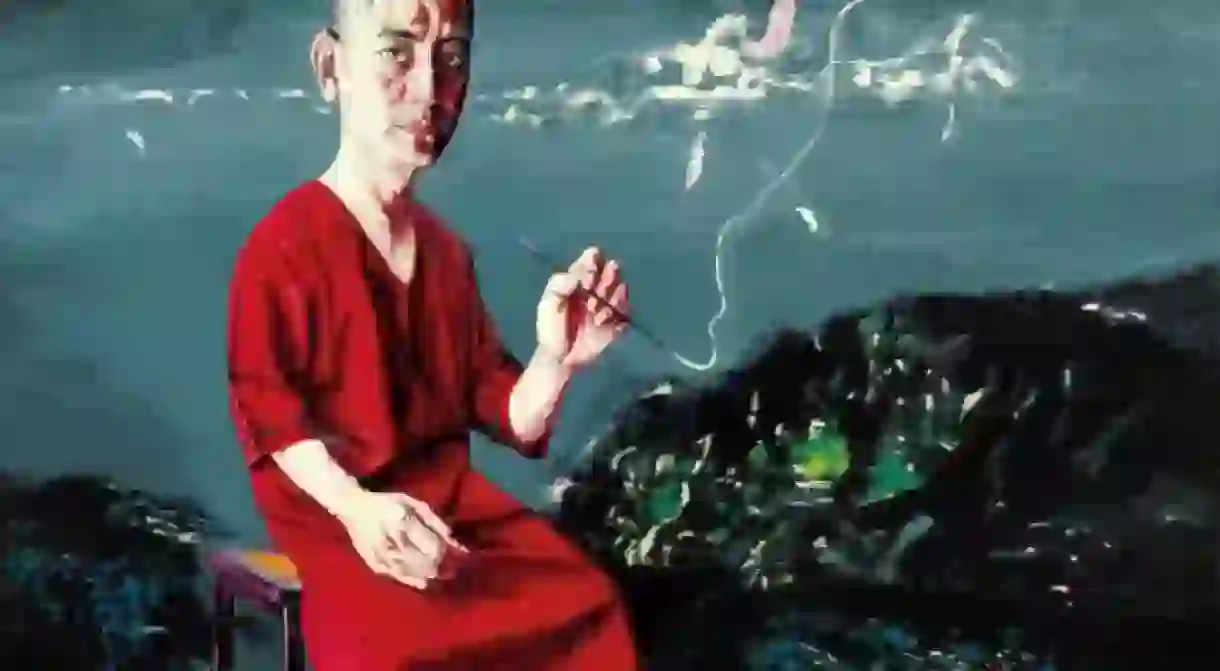Zeng Fanzhi: China Masked

While drawing form the works of German Expressionist artists such as Max Beckmann, Wuhan-born artist Zeng Fanzhi’s works are firmly situated within the artistic, political, and social context of 21st century China.
Zeng Fanzhi knows well the parameters of Western representational art, and his works visibly create a dialogue between the artist and the tradition of the Old Masters such as Albrecht Dürer. Born in Wuhan, Hubei province in 1964, his paintings cover the traditional genres of still-life, landscape, and portraiture; his best-known works are in serial format, the Hospital Series, the Meat Series, the Mask Series. Zeng’s works have been highly exhibited in the international contemporary arts scene. In 2012, the Gagosian Gallery in London put on a highly acclaimed solo exhibition of new works by Zeng.

Zeng’s iterations on a single theme are reminiscent of the multiple views of cathedrals and urban landscapes by Impressionist artists such as Claude Monet and Camille Pissarro. Yet Zeng’s art with its stylistic tendency towards strong brushstrokes and psychological introspection reflects the artist’s admiration for the works by German expressionist painters.
Zeng’s works, however, are also firmly situated within the artistic, political, and social context of 21st century China. His landscapes, for example, could hardly veer further away from the stately cottages and bucolic countrysides that grace the walls of European museums by ‘Old Masters’ such as English painter John Constable and the late paintings of Peter Paul Rubens. Zeng’s latest landscapes flirt with abstraction; in Huang Jiguang, for example, jagged gnarled lines cut the surface, the intermingled lines less like Jackson Pollock’s blending of curves than the jagged shards of ice of Caspar David Friedrich. A figure at the bottom seems to be intent on drawing perilously near to finely-painted loops that bring to mind barbed wire. Huang Jiguang is name of a Korean War hero of the People’s Liberation Army who was touted as a model for the sacrifices expected of all good Chinese communists.

Zeng also focuses on figurative paintings. Beautifully painted, there’s something deliberately grotesque and deeply unsettling about Zeng’s portraits, often painted on large canvases that dominate the viewer. His figures are very, very still, yet they do not allow the viewer to simply sit back and enjoy. Staring directly out of the canvas, locked into passive poses, the stillness of gaze and body seems to belie an undercurrent of unease and tension.
With outsized heads and misshapen bodies, none of his portraits of individuals smile out of the canvas; on the whole, their stares are blank. In addition, Zeng often leaves the bodies apparently unfinished, with paint dripping down absent limbs. The bodies in his portraits appear as if smeared across a flat surface. Furthermore, with his tendency to exaggerate hands and diminish bodies, his portraits straddle the boundary between portrait and caricature. Among his best-known works are those of the Mask Series, one of which, Mask Series, 1996, no. 6, was sold for just over $9.7 million in 2006. Only in these masked figures do we detect Joker-like smiles that reveal nothing of the individual behind the mask.
By Stephanie Chang













